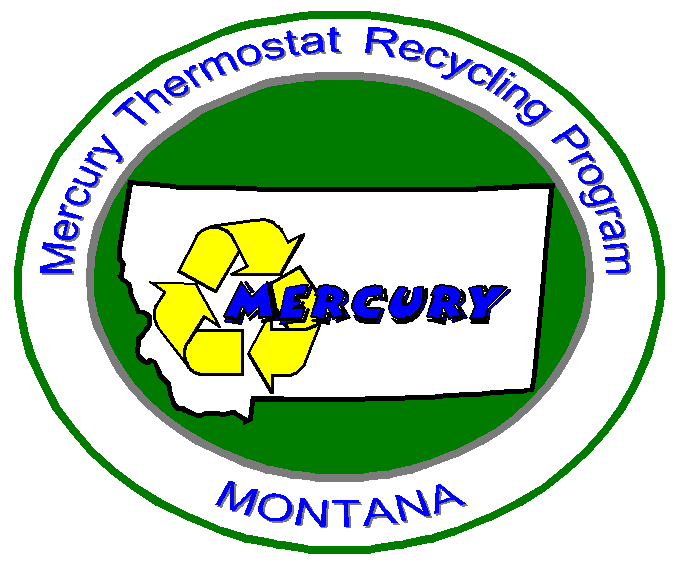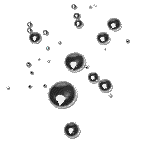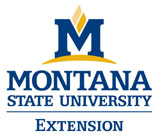Mercury Thermostat Recycling
Mercury and other heavy metals, improperly managed, pose danger to human and environmental health. Common sources of mercury include, thermometers, light bulbs, and thermostats. Used mercury thermostats have no place in our landfills and should be properly recycled. Replacing mercury thermostats with energy saving programmable electronic thermostats increases the opportunity to prevent pollution.
FACTS ABOUT THERMOSTATS
|
Elemental Mercury |
Peaks to Prairies provides the following information and related links
for states and regions wishing to develop mercury thermostat recycling programs
based on the success of the Montana Weatherization Program. Please contact
Mike Vogel if you have questions or
need further assistance. 
In the fall of 1999, the Montana State University Extension Service developed a program to reduce the amount of mercury going into Montana landfills from mercury containing thermostats. The Montana Department of Public Health and Human Services (DPHHS), Human Resources Development Council (HRDC) and MSU Extension Low Income Weatherization Assistance Program were the partners needed to make this happen. HRDC technicians make weatherization improvements to homes across the state including up to 2000 furnace modifications and changeouts throughout the year. To implement the mercury reduction program, the Weatherization Program (with funding from DPHHS) provided training to technicians to properly collect and recycle the many mercury thermostats discovered in these retrofits.
Technicians collect mercury thermostats from clients and store them in a padded envelope in a lined PVC bucket. The bucket is properly labeled under "universal waste regulations". Accompanying each bucket is a thermostat collection log, MSDS sheets and a mercury spill clean-up kit. Technicians turn in thermostats to an Extension Service representative at quarterly or semi-annual trainings. The thermostats are then taken to an approved storage facility and shipped to a recycler when an appropriate number is accrued. With increasing national concern about PBT’s, this has been an effective measure to prevent air, soil, and water problems caused by this obvious source of mercury in landfills in our region.
Click on the following links to read about other programs in Ohio and Indiana.
Montana's program takes P2 one step further by replacing the mercury thermostats with electronic programmable thermostats adding an energy conservation component. With traditional thermostats, the same temperature is maintained unless the occupant is diligent in manually adjusting the unit. Programmable thermostats allow for automatic adjustments while occupants are asleep or away from home. Programmable thermostats offer as much as a 50 percent rate of return. (Source: Energy Efficiency & Renewable Energy Network, http://www.eere.energy.gov/). Business sponsor Johnstone Supply of Billings contributed financially to this aspect of the program which Montana State University Extension Service continues to manage.
|
Examples of Documents Used in the Program: |
Recycling Opportunities: |
Summary of links for this page:
- http://www.auburn.edu/administration/rms/universal-waste.html - Universal Waste Rule
- http://www.labsafety.com/store/product.asp?dept_id=4402&pf_id=9193&cat_prefix=WQ - Lab Safety Corp.*
- http://education.jlab.org/itselemental/ele080.html - Jefferson Lab
- http://www.in.gov/idem/4149.htm - Indiana Hg Program
- http://www.state.sd.us/denr/des/wastemgn/Recycling/Bulbs.htm - SD list of recyclers
- http://epa.ohio.gov/ocapp/p2/mercury_pbt/mercury/collect.aspx - Ohio list of recyclers
- http://www.bethlehemapparatus.com/ - Bethlehem Apparatus*
- http://www.mwsi.com/ - Mercury Waste Solutions Incorporated*
- http://www.eere.energy.gov/ - DOE Thermostats Fact Sheet
- http://www.newmoa.org/Newmoa/htdocs/prevention/mercury/programs/ - National Mercury Reduction Database
* note: The use of commercial sites does not express or imply any endorsement for the views, services or products displayed there, by Peaks to Prairies or any other program partners.



